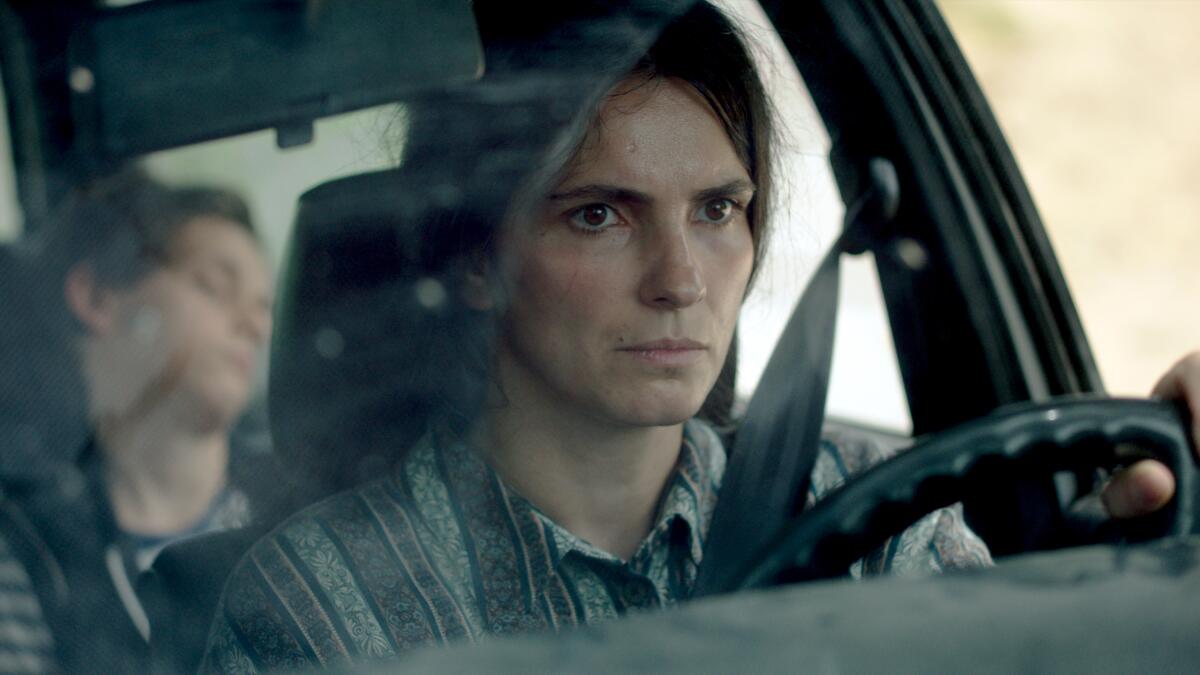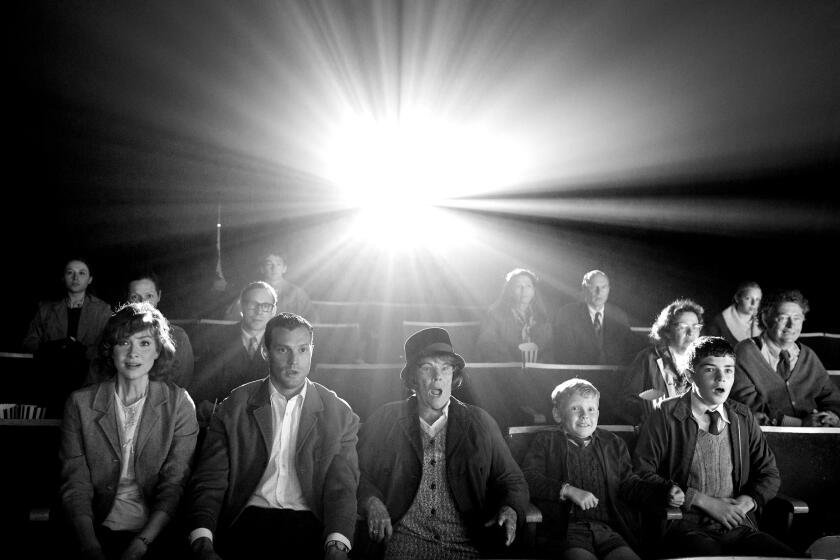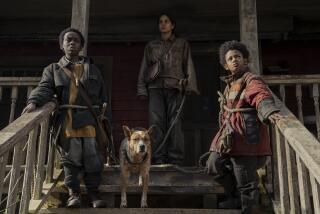Review: Widowed and oppressed, the women of ‘Hive’ assert a gritty independence

- Share via
The Times is committed to reviewing theatrical film releases during the COVID-19 pandemic. Because moviegoing carries risks during this time, we remind readers to follow health and safety guidelines as outlined by the Centers for Disease Control and Prevention and local health officials.
There’s no getting around the straight-ahead seriousness and sense of purpose on the face of Fahrije, the dark-haired, stern-eyed village widow we get to know across Kosovo-born filmmaker Blerta Basholli’s coiled portrait “Hive.” She looks as if she has a thousand things on her mind, and in a short span as Basholli’s Sundance-honored narrative feature debut unrolls, some of those concerns become grimly apparent. Any one of her trials could easily destabilize the average woman, but Fahrije — whose face belongs to Albanian actress Yllka Gashi — is, it turns out, no ordinary woman.
“Hive” is set a handful of years after the Kosovo war but still near enough to be in its rattling wake. It’s based on a true story of feminist defiance and healing that counts as one of the more affecting tales of recovery to come from the conflict, which decimated villages and, from its massacres, left many families of the missing in a limbo of grief that still exists.
Fahrije is one of those ever-waiting wives; we first glimpse her trespassing on a mass grave investigation site to check bags in a U.N. truck for a body, clothes, identification, some sense of finality regarding the husband who disappeared along with so many in her town of Krusha e Madhe. At home, she takes care of a young son and daughter, an infirm father-in-law (Çun Lajçi) and a row of beehives producing honey, the sale of which is barely enough to keep them afloat.
We soon realize that for the remaining old guard of men in her patriarchal town, a missing husband is not an absent figure when it comes to the proper place for the wife, which is in the home, dependent on a man who, in this wretched situation, isn’t likely to return. At the regular meetings of a threadbare women’s organization Fahrije helps run — its struggling widows reliant on dwindling aid — she listens as the threat of gossip and worse keeps many of these desperate, mourning souls from even getting a driver’s license so they can make use of a donated car and earn a living.
Fahrije can’t wait, however, for word on what she knows in her bones is the fate of her husband, or for an ancient misogyny to evaporate. She arrives at a solution that will put their whole grieving sisterhood to work: making and jarring the beloved regional red pepper relish known as ajvar and selling it themselves as a business. What isn’t as easy to sell to a stricken populace that can’t view women as equal members of society is the aroma of independence this enterprise creates.
Holiday titles range from ‘The Power of the Dog’ and ‘King Richard’ to ‘The Matrix Resurrections’ and ‘Spider-Man: No Way Home.’
“Hive” is occasionally bumpy, but it’s the rough terrain of a raw narrative — the out-of-place music cue or awkward dream snippet doesn’t disrupt the social realist momentum, which is at its best when focused on the grit of how moving forward is also moving on. The obstacles in Basholli’s dramatized telling of a real Kosovan woman’s game-changing initiative range from pushback at home to anonymous violence. One scene of attempted assault during Fahrije’s rounds is terrifying in its matter-of-factness.
But in the tight hold Basholli and cinematographer Alexander Bloom keep on their lead — Gashi’s unbreakable determination and laser gaze like a self-generating power source — lies the stark thrum of the picture’s inspiration: “Nevertheless, she persisted” in action. And when we settle in for scenes of this collective, born of strife, tragedy and necessity, the members working together, talking about their lives, even laughing through their hardships, we realize the other key to “Hive” — that for these women, the tragedy of who’s missing needn’t preclude addressing what’s always been missing.
‘Hive’
In Albanian with English subtitles
Not rated
Running time: 1 hour, 24 minutes
Playing: Starts Nov. 12, Laemmle Royal, West Los Angeles; Laemmle Playhouse 7, Pasadena
More to Read
Only good movies
Get the Indie Focus newsletter, Mark Olsen's weekly guide to the world of cinema.
You may occasionally receive promotional content from the Los Angeles Times.











